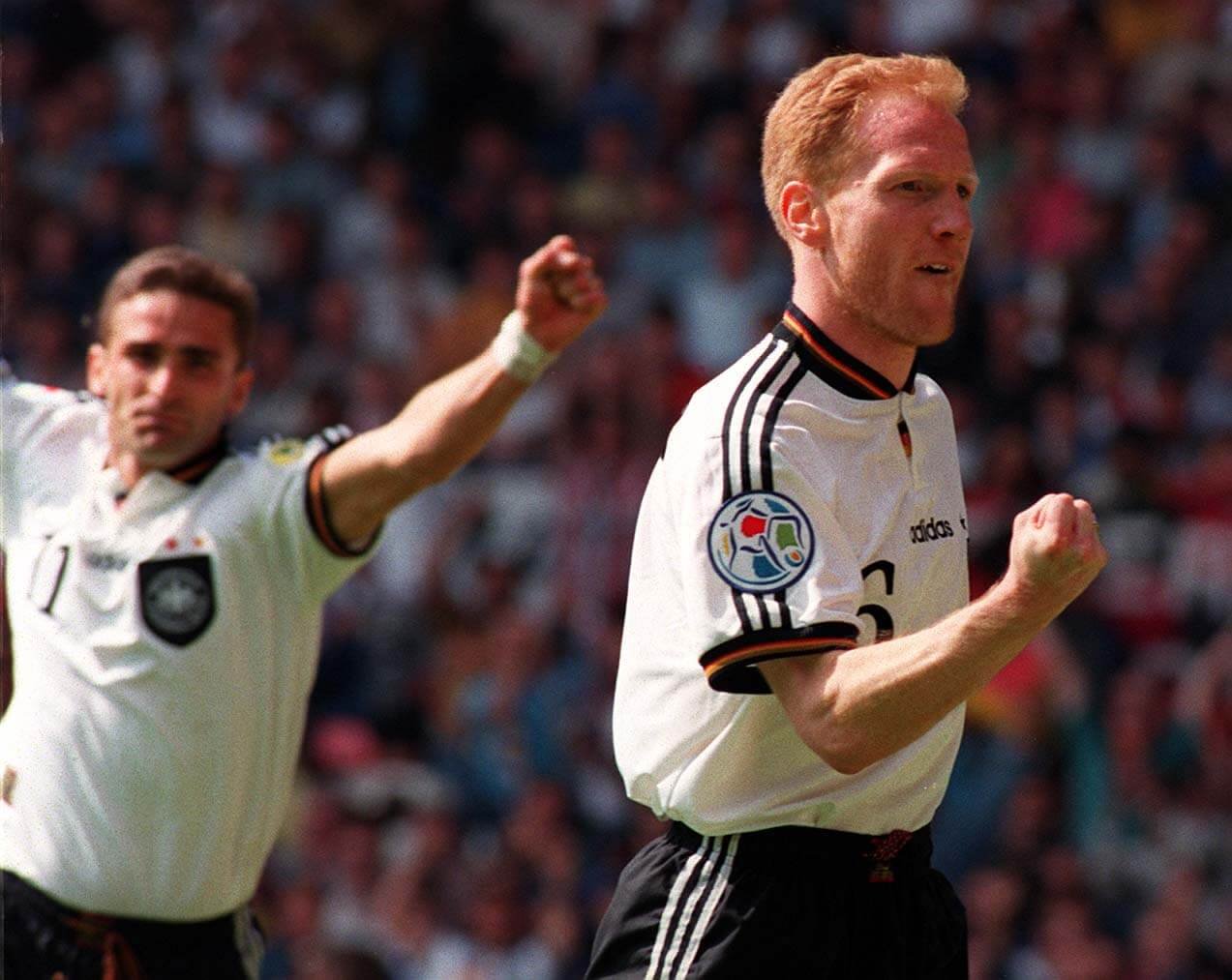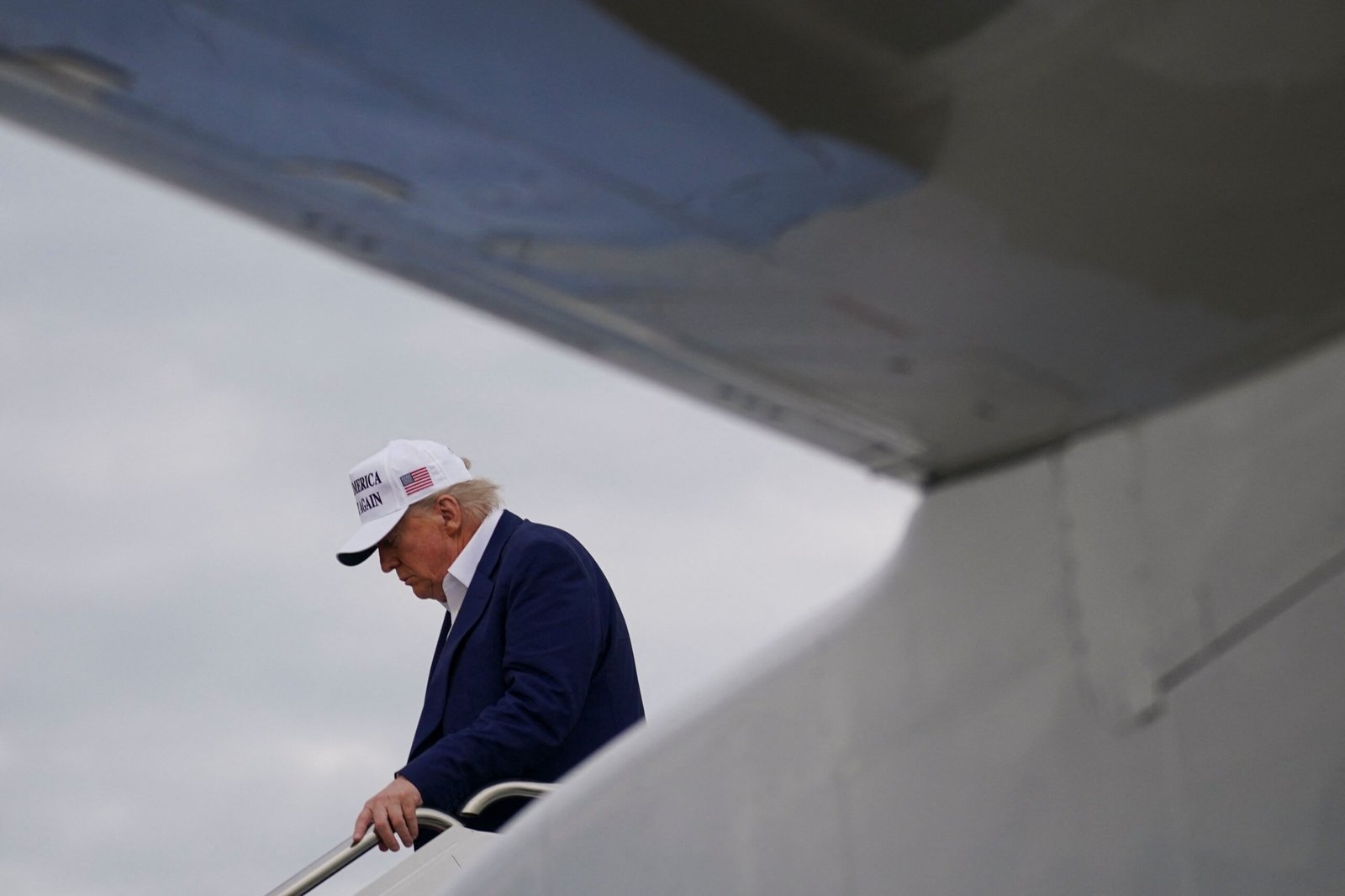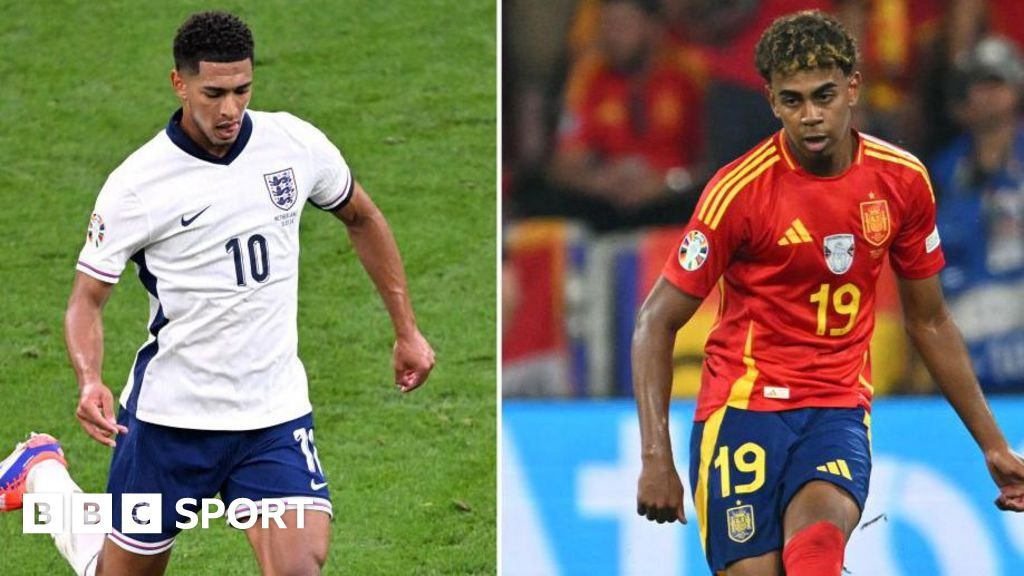The European Championship is nearly over, but don’t worry: there are still plenty of things to argue over.
One of them will be the identity of the player of the tournament. Everyone will have their opinions. Some will be outraged that anyone could possibly have a different opinion to their own.
You’d like to think that whoever wins will be happy about it. Certainly happier than Luka Modric, who didn’t look delighted to be holding his player-of-the-match award for his performance against Italy. That wasn’t a huge surprise: Croatia had just conceded a last-minute goal that left their hopes of qualifying for the Euro 2024 knockout rounds in the hands of other teams. A sense of achievement at claiming an individual trophy wasn’t at the forefront of his mind.
Así recibió Luka Modrić el MVP del partido luego de quedar eliminado de la Eurocopa.
Entre lágrimas. 💔🇭🇷 pic.twitter.com/W5aRqRXi4t
— Sudanalytics (@sudanalytics_) June 24, 2024
Hopefully the tournament winner will be a little more like N’Golo Kante, player of the match in France’s first two games, who had a big smile on his face with his thumbs up while he was pictured holding his award. The delight on the face of Poland’s Lukasz Skorupski, their second-choice goalkeeper, after getting the nod in their game against France, was obvious.
Equally Ollie Watkins, whose four touches (a couple of them quite important, to be fair) were deemed enough to warrant the award in England’s semi-final against the Netherlands and whose smile was wider than the Rhine.

Watkins with his player-of-the-match trophy after the semi-final (Oliver Hardt – UEFA/UEFA via Getty Images)
But it does lead you to wonder: who decides these awards? Who bestows the title of player of the match or player of the tournament upon an exhausted and probably emotional footballer?
At the World Cup in Qatar it was us, the great global public, who decided. You could, if you were so inclined, go onto the FIFA website during a match and vote for your standout player.
Generally speaking, that led to three categories of winner: a) famous guy, b) guy who scored a goal, or c) a goalkeeper, particularly when there had either been an unexpected result or a penalty shootout. There were only six games in the whole tournament in which goals were scored that did not fall into one of those groups. Lionel Messi won it in five of Argentina’s seven games, including every knockout game.
Which isn’t to say any of that is necessarily wrong. As a casual fan watching on television, you remember the things that are eye-catching and goals, wonder performances by goalkeepers and famous players are the things that catch your eye.
However, UEFA clearly wants something a little more considered, rather than unfettered democracy. So for Euro 2024, as they have for previous European Championships, they have brought in the experts: specifically, the UEFA technical observers.

Avram Grant and Fabio Capello observe for UEFA in Dusseldorf (Adam Davy/PA Images via Getty Images)
This is essentially a panel of coaches (former and, some of them would argue, current) and players, appointed to watch the tournament and produce reports on each game. Their primary job is to produce reports “using video and data to illustrate intriguing technical and tactical features” on each game.
Then, when all the games have been played and won, these reports are compiled to form the basis for UEFA’s overall technical report on the whole tournament, the idea being to chart tactical trends and technical developments, generally producing a snapshot of where international football is at the time. Some of the reports are quite interesting, if rather dry: think of them as a sort of football textbook, written by the game’s professors.
But the other responsibility the observers have from each game is to select both the player of each match, and the player of the tournament.
In theory, at least, this isn’t purely done on vibes: they are given some criteria to work around and, according to UEFA, must “consider which players have made an outstanding contribution in some or all of the following ways: by playing with exceptional skill in attack or defence; playing a part in decisive actions in attack or defence; displaying tactical maturity and efficiency; and playing with a positive and respectful attitude”.
One new thing that the observers have enjoyed at Euro 2024 to help with their reports is live help from some behind-the-scenes helpers at UEFA’s big central stats bunker at their headquarters in Nyon. A data analyst has been assigned to every match, and is in constant dialogue with that game’s technical observer.
The analyst feeds information to the observer, who will reciprocate with their own reports from the stadium. They also use this information to inform “state-of-the-art visualisation tools” that provide graphics and charts to “add support to the points the observer wants to highlight”.
Towards the end of the whole jamboree, the panel will convene to choose the player of the tournament, the young player of the tournament and the goals of the tournament. The reports from individual games are circulated among the observers to help inform their decisions.
They are asked to consider not just the individual performances of the players, but also how they have impacted their team, plus disciplinary issues are taken into account.

Matthias Sammer inspired Germany to win Euro 96 (John Giles – PA Images/PA Images via Getty Images)
The player of the tournament award was first given in 1996, when Germany’s Matthias Sammer won, followed by French hero Zinedine Zidane in 2000 and Greece captain Theo Zagorakis in 2004. Andres Iniesta and Xavi were rewarded in Spain’s era of dominance in 2008 and 2012, 2016 saw Antoine Griezmann prevail and at Euro 2020, it was Italy goalkeeper Gianluigi Donnarumma.
You can see the pattern: the chances are that if you’re a big player for the team that wins, you’re in with a good shout. Indeed, Griezmann is the only player to have been named player of the tournament without actually winning the tournament.
There’s also the young player of the tournament, which will be awarded for the third time. Players born in 2002 or later will be eligible, meaning that likely 2024 winner Lamine Yamal not only qualifies this year, but he will in 2028 too, since he was born in 2007. Renato Sanches (2016) and Pedri (2020) won the first two awards.
So who is on the shadowy panel that decides all of this? Well, it’s not particularly shadowy actually, but does feature some of the biggest managerial names from the last few decades.
The full list of observers for Euro 2024 is Fabio Capello, Rafa Benitez, David Moyes, Ole Gunnar Solskjaer, ex-Netherlands international (and briefly Crystal Palace manager) Frank de Boer, former Croatia midfielder Aljosa Asanovic, former Chelsea and Portsmouth manager Avram Grant, Aitor Karanka, former Republic of Ireland goalkeeper Pat Bonner, France’s Euro ’84 winner Jean-Francois Domergue, and former Romania international Ioan Lupescu.

Benitez takes a photo as Moyes looks on before Portugal’s quarter-final against France (Chris Brunskill/Fantasista/Getty Images)
Why do they do it? Keeping in touch with the game, essentially.
”It’s a really great way of watching the top teams closely and keeping up with trends,” said Solskjaer. “I also get to meet new and old football acquaintances in a more relaxed setting.“
In past years, Sir Alex Ferguson, former Germany international Steffen Freund, Robbie Keane, former France coach Corinne, ex-France international and journeyman international coach Alain Giresse, former Iceland and Sweden coach Lars Lagerback, former Aston Villa forward Savo Milosevic and… Michel Platini have all fulfilled the role. Well, you can’t get them all right.
The panel was first convened for Euro ’96, when its five members were Roy Hodgson, Gerard Houllier, Rinus Michels, former Switzerland coach Daniel Jeandupeux and then-Sweden manager Tommy Svensson.
And you never know — being on the panel could lead to bigger and better things: one of its members in 2016 was Gareth Southgate.
(Top photo: Reinaldo Coddou H – UEFA via Getty Images)







